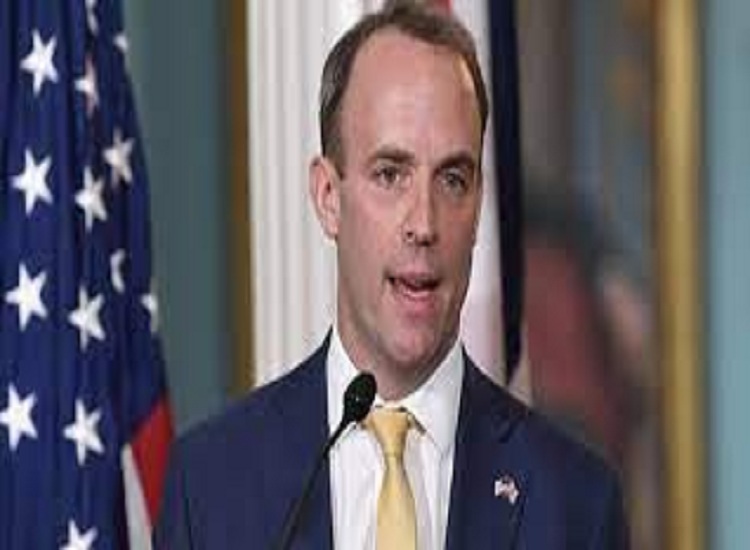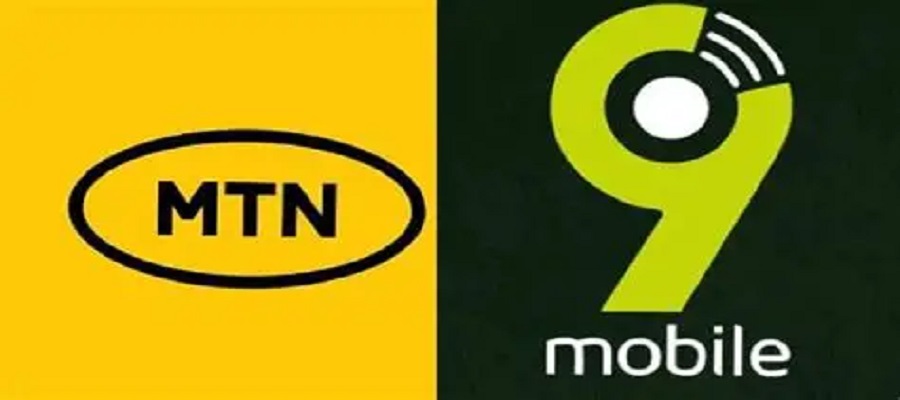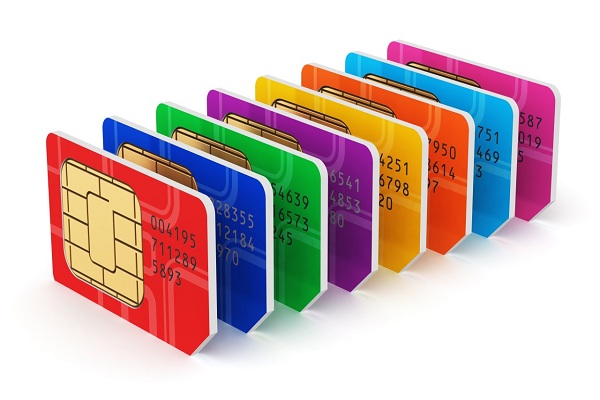Telecom
UK Pledges £22m to Support Cyber Capacity Building in Africa

Dominic Raab, British Foreign Secretary, has announced £22 million of new investment to build cyber security resilience in developing countries and globally, particularly in Africa and the Indo-Pacific.

He disclosed this in a speech delivered at the National Cyber Security Centre’s CYBERUK conference on Wednesday.
Raab announced that the UK would spend about £3 million of this funding to help INTERPOL set up a new team that will fight cybercrime in Africa.
The new INTERPOL desk will work across Nigeria, Ethiopia, Ghana, Kenya and Rwanda creating a regional strategy to support joint operations against cybercrime, and strengthen African states’ capability to combat the crime and those behind it.
Since 2018 the UK has been actively partnering with Nigeria to support the development of Cyber Security policies and strategies.
Both countries share an ambition to create a safe and secure digital community that provides opportunities for Nigerian citizens and promotes peaceful engagement in cyberspace that enhances national prosperity.
The launch in February this year by President Buhari of the new Nigerian National Cyber Security Policy and Strategy (NCPS) 2021 followed well-targeted UK-funded technical assistance through the UK’s Digital Access Programme.
That programme has also funded a project to upskill Small Medium and Enterprises across Nigeria on cyber basics which was delivered through the NGO CyberSafe Foundation (https://cybersafefoundation.org/).
The UK Department of International Trade (UK DIT) has also hosted a virtual event for Nigerian stakeholders interested in cyber security for the financial services sector. This event discussed emerging cyber security issues for the sector and showcased aspects of the UK’s approach.
Today’s development is a part of the UKs ambition to build global cyber resilience. We see Nigeria and Africa as a whole as an important partner in this. With some of the fastest growing economies in the world, Africa has become a target for opportune cybercriminals. By creating a central coordination desk within INTERPOL that law enforcement across Africa can use, the UK hopes to improve collaboration across borders to advance intelligence sharing, and ultimately stop the perpetrators of cybercrime in Nigeria and across Africa.
Speaking to the conference of security experts the Foreign Secretary outlined that the UK wanted to act as a responsible cyber power. As well as working with other countries to shape cyberspace in line with our values, the UK is also making around £22 million of new investment available to support capacity building in cyber security for developing countries and globally.
In his speech, Foreign Secretary, Dominic Raab said: “We are working with like-minded partners, to make sure that the international order that governs cyber activity is fit for purpose.
“Our aim should be to create a cyberspace that is free, open, peaceful and secure, which benefits all countries and all people.
“We want to see international law respected in cyberspace, just like anywhere else. And we need to show how the rules apply to these changes in technology, the changes in threats, and the systemic attempts to render the internet a lawless space.”
INTERPOL Secretary General Jürgen Stock said: “With more than 4.5 billion people online, more than half of humanity is at risk of falling victim to cybercrime at any time, requiring a unified and strong response.
“The UK support for INTERPOL’s cyber initiative in Africa underlines its commitment to this fight and will be an important piece of the global security architecture to combat cybercrime.”
Cybercrime is one of the most prolific forms of international crime, with damages set to cost the global economy $10.5 trillion annually by 2025. With some of the fastest growing economies in the world, coupled with a reputation for weak network security, African countries are currently a big target for opportunistic cyber criminals.
In addition to cybercrimes, there is also a growing trend for higher impact online financial scams in Africa, with an INTERPOL survey revealing that in the two years between 2013 and 2015 criminals in Africa targeted businesses for an average of US$ 2.7 million each time.
Despite the best efforts of law enforcement across the region, on average only 30% of those crimes could be prosecuted due to differing legal systems and legislation across borders. The new INTERPOL team will lead efforts to change that, facilitating cross-border collaboration to stop cybercriminals.
Telecom
NCC, REA Move to Power Telecoms with Renewable Energy

Nigerian Communications Commission (NCC) and Rural Electrification Agency (REA) have teamed up to develop an initiative that will reduce the $350 million annual spending on diesel by telecom operators in Nigeria.

According to a press statement by Nnenna Ukoha, acting had of Public Affairs, NCC, this collaboration will focus on deploying renewable energy solutions to support telecom infrastructure, particularly in rural and underserved areas.
To that end, the two agencies have inaugurated what they called NCC–REA Collaboration Committee, aimed at deploying renewable energy solutions to power telecom infrastructure across the country.
According to the State of Africa’s Infrastructure Report 2025 by the Africa Finance Corporation, telecom operators in Nigeria consume more than 40 million litres of diesel every month, costing them over $350 million annually.
The statement read, “The Nigerian Communications Commission has formally inaugurated the NCC–REA Collaboration Committee, marking a pivotal step towards advancing Nigeria’s digital and energy inclusion objectives by developing modalities for the deployment of renewable energy to support telecom infrastructure in Nigeria.”
The inauguration ceremony, held on Friday, at the NCC Headquarters in Abuja, was presided over by Dr Aminu Maida, executive vice chairman and chief executive officer, NCC.
Maida was joined by Abba Aliyu, managing director of the REA, along with senior executives and committee members from both organisations.
Speaking at the event, Maida described the collaboration as a timely and strategic alignment of national priorities.
He noted that bridging the connectivity and power gaps in rural areas remains critical for Nigeria’s growth and development.
He highlighted that the demand for digital services and connected communities creates an opportunity for renewable energy to play a crucial role.
Maida further emphasised that the partnership goes beyond infrastructure; it is aimed at driving inclusion, reducing inequalities, and fostering shared prosperity.
“Whether it is powering a base station or enabling a child to access digital learning, this partnership has the potential to transform realities and bring opportunity closer to the people.
“This initiative is about more than infrastructure, it is about driving inclusion, bridging inequalities and creating the conditions for shared prosperity,” he was quoted in the statement.
He also noted that the initiative aligns with President Bola Tinubu’s Renewed Hope Agenda, which aims to ensure no community is left behind in Nigeria’s energy and digital transformation.
Aliyu, representing REA, expressed confidence in the transformative potential of the collaboration.
“This partnership will unlock sustainable development opportunities for millions of Nigerians, especially those in areas lacking traditional infrastructure,” he said.
He further emphasised that the collaboration would address both energy and connectivity gaps, benefiting those who are currently underserved.
The newly established NCC-REA Collaboration Committee will work to co-develop and implement integrated solutions that leverage renewable energy to power telecom sites.
The statement noted that the committee will also focus on sharing geospatial data to improve planning, aligning funding frameworks, and tracking the socio-economic impact of the project through clear performance indicators.
Telecom
NCC Approves MTN, 9Mobile Roaming Collaboration Deal

MTN Nigeria Communications Plc has announced the execution of a national roaming agreement with Emerging Markets Telecommunications Services Limited (9Mobile), a move that signals a major milestone in Nigeria’s telecommunications landscape.

The Nigerian Communications Commission (NCC), the industry’s regulatory authority, has approved the three-year deal, which allows 9Mobile subscribers to roam seamlessly on MTN Nigeria’s extensive network infrastructure across the country.
The agreement, effective immediately, will significantly enhance connectivity and user experience for 9Mobile customers, particularly in areas where its network coverage is limited.
By leveraging MTN’s expansive infrastructure, 9Mobile can now offer improved service reach and reliability, without duplicating capital-intensive investments in network deployment.
In a notice to the Nigerian Exchange Limited and the investing public, MTN Nigeria described the arrangement as a strategic collaboration that underscores its leadership in fostering innovation, industry cooperation, and operational efficiency.
The company emphasized that the initiative aligns with the NCC’s broader objective of promoting infrastructure sharing to improve telecommunications services nationwide.
“This agreement represents a significant step in our commitment to driving industry collaboration, improving customer experience, and supporting the NCC’s vision of a fully connected Nigeria,” said Karl Toriola, chief executive officer, MTN Nigeria.
“Delivering the scale required for telecommunications services in Nigeria requires strong collaboration between the private sector, public sector, and long-term investors. This agreement demonstrates what we can achieve when we collaborate, and we are delighted to announce it today after months of groundwork.”The national roaming deal enables subscribers from 9Mobile to access voice and data services through MTN’s network in areas where the former lacks adequate coverage.
This marks the first such large-scale, cross-network roaming arrangement between two major operators in Nigeria, setting a precedent for future cooperative efforts in the telecom industry.
MTN Nigeria highlighted that the agreement contributes to more effective use of telecommunications resources, reduces infrastructure duplication, and accelerates the expansion of mobile broadband access across underserved regions.
It also supports both operators’ sustainability objectives by maximizing existing investments and reducing the environmental impact of deploying overlapping network facilities.
“This strategic collaboration is yet another first in the country by MTN Nigeria and marks a significant milestone for the sustainability of the telecommunications industry,” the company stated.
“By enabling national roaming, MTN Nigeria is contributing to a more effective use of telecommunications resources and accelerating efforts to expand connectivity across the country.”
The agreement is expected to benefit not just subscribers and operators but also regulators and investors who have consistently advocated for policies that promote shared infrastructure and efficient capital utilization in Nigeria’s digital economy.
Uto Ukpanah, company secretary, MTN Nigeria, affirmed the company’s ongoing dedication to initiatives that create shared value.
“MTN remains committed to fostering innovation and partnerships that create sustainable value for all stakeholders while promoting digital and financial inclusion nationwide,” she noted.
With the successful rollout of this agreement, the telecoms industry is expected to see improved service delivery and expanded access to quality mobile services, especially in rural and semi-urban communities. The collaboration sets a benchmark for future inter-operator partnerships and reinforces the importance of regulatory support in advancing national connectivity goals.
Telecom
Don’t Visit Telecom Centers for Now — ALTON Warns of SIM Service Downtime

Association of Licensed Telecommunications Operators of Nigeria (ALTON) has announced a temporary disruption in SIM-related services across all mobile networks in the country.

The disruption, according to a statement on Wednesday, follows a directive from the National Identity Management Commission (NIMC), mandating mobile network operators (MNOs) to migrate to a new identity verification platform.
ALTON said the transition had triggered unforeseen technical challenges, affecting services such as SIM registration, replacement, and mobile number portability.
“While the new platform is intended to enhance the integrity and efficiency of identity management in Nigeria, unfortunately, the transition has temporarily impacted service delivery,” the association stated.
It added that MNOs would not be able to support SIM swaps, new activations, and related services until the issues are resolved.
ALTON noted that its members are working closely with the Nigerian Communications Commission (NCC), NIMC, and other stakeholders to restore normalcy.
The association appealed for public understanding and urged subscribers to delay visits to service centers for SIM-related matters.
“We sincerely apologise for the inconvenience and will continue to provide timely updates,” the statement read.
ALTON reaffirmed its commitment to delivering secure and quality telecommunications services to Nigerians.

 E-Financial3 days ago
E-Financial3 days agoAccess ARM Pensions Advocates Ways to Boost Civil Servants’ Retirement

 Telecom3 days ago
Telecom3 days agoMTN Nigeria Launches “Mega Billion Promo” to Reward Customer Loyalty and Drive Financial Inclusion

 E-Business3 days ago
E-Business3 days agoFirm Warns as Social Media Scams Put Users’ Data at Risk

 Telecom2 days ago
Telecom2 days agoAVEVA Highlights Climate Impact Gains in 2024 Sustainability Report

 General News2 days ago
General News2 days agoAfCFTA Opens Opportunity for Logistics Sector

 E-Business3 days ago
E-Business3 days agoNigeria Ranks 3rd in Africa for Ransomware Threats –INTERPOL

 Telecom2 days ago
Telecom2 days agoALTON Explains SIM-related Services Disruption Across Mobile Networks

 General News3 days ago
General News3 days agoNELFund Warns Students Against Fake Loan Portal























